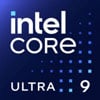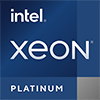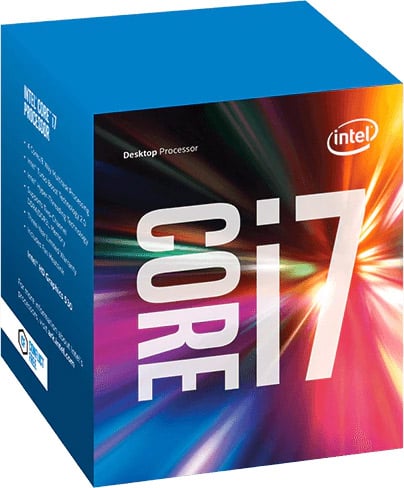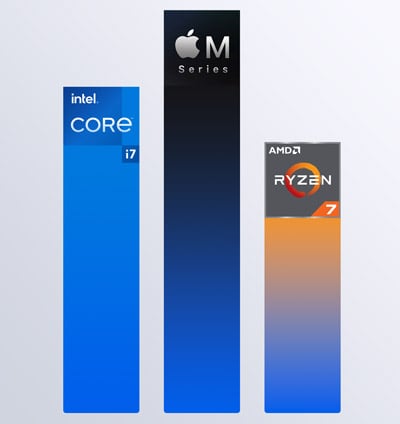
Intel Core i7-12700K Benchmark, Test and specs
Last updated:
The Intel Core i7-12700K was released in Q4/2021 and has 12 cores. The processor can process 20 threads simultaneously and uses a mainboard with the socket LGA 1700. In the Geekbench 5 benchmark, the Intel Core i7-12700K achieved a result of 1,872 points (single-core) or 14,992 points (multi-core).

| Name: | Intel Core i7-12700K |
|---|---|
| Family: | Intel Core i7 (298) |
| CPU group: | Intel Core i 12000 (34) |
| Architecture: | Alder Lake S |
| Segment: | Desktop / Server |
| Generation: | 12 |
| Predecessor: | Intel Core i7-11700K |
| Successor: | Intel Core i7-13700K |
CPU Cores and Base Frequency
The Intel Core i7-12700K has 12 cores. The clock frequency of the Intel Core i7-12700K is 3.60 GHz (5.00 GHz). An initial performance assessment can be made using the number of CPU cores.
| CPU Cores / Threads: | 12 / 20 |
|---|---|
| Core architecture: | hybrid (big.LITTLE) |
| A-Core: | 8x Golden Cove |
| B-Core: | 4x Gracemont |
| Hyperthreading / SMT: | Yes |
|---|---|
| Overclocking: | Yes |
| A-Core Frequency: | 3.60 GHz (5.00 GHz) |
| B-Core Frequency: | 2.70 GHz (3.80 GHz) |
Internal Graphics
The Intel Core i7-12700K has an integrated graphics that the system can use to efficiently play back videos. The Intel Core i7-12700K has the Intel UHD Graphics 770 installed, which has 32 streaming multiprocessors (256 shaders).
| GPU name: | Intel UHD Graphics 770 |
|---|---|
| GPU frequency: | 0.30 GHz |
| GPU (Turbo): | 1.50 GHz |
| Compute units: | 32 |
| Shader: | 256 |
| Hardware Raytracing: | No |
| Release date: | Q4/2021 |
| Max. displays: | 3 |
|---|---|
| Generation: | 11 |
| Direct X: | 12 |
| Technology: | 10 nm |
| Max. GPU Memory: | 64 GB |
| Frame Generation: | No |
Hardware codec support
Processors with integrated graphics can process video codecs faster. Support for modern codecs can significantly increase system efficiency during video playback.
| h265 / HEVC (8 bit): | Decode / Encode |
|---|---|
| h265 / HEVC (10 bit): | Decode / Encode |
| h264: | Decode / Encode |
| VP8: | Decode / Encode |
| VP9: | Decode / Encode |
| AV1: | Decode |
|---|---|
| AVC: | Decode / Encode |
| VC-1: | Decode |
| JPEG: | Decode / Encode |
Memory & PCIeThe Intel Core i7-12700K supports a maximum of 128 GB memory. Depending on the mainboard, the processor can use a maximum of 2 (Dual Channel) memory channels. This results in a maximum bandwidth of the main memory of 76.8 GB/s. |
|
| Memory type: | Memory bandwidth: |
|---|---|
| DDR5-4800 DDR4-3200 | 76.8 GB/s 51.2 GB/s |
| Max. Memory: | 128 GB |
| Memory channels: | 2 (Dual Channel) |
| ECC: | Yes |
| PCIe: | 5.0 x 20 |
| PCIe Bandwidth: | 78.8 GB/s |
Thermal ManagementThe Intel Core i7-12700K has a TDP of 125 W. Based on the TDP, the system manufacturer can and must adapt the cooling solution to the processor. |
|
|---|---|
| TDP (PL1 / PBP): | 125 W |
| TDP (PL2): | 190 W |
| TDP up: | -- |
| TDP down: | -- |
| Tjunction max.: | 100 °C |
Technical details
Modern production reduces the waste heat of a processor and increases its efficiency. The Intel Core i7-12700K is made in 10 nm and has 37.00 MB cache.
| Technology: | 10 nm |
|---|---|
| Chip design: | Monolithic |
| Socket: | LGA 1700 |
| L2-Cache: | 12.00 MB |
| L3-Cache: | 25.00 MB |
| AES-NI: | Yes |
| Operating systems: | Windows 10, Windows 11, Linux |
| Virtualization: | VT-x, VT-x EPT, VT-d |
|---|---|
| Instruction set (ISA): | x86-64 (64 bit) |
| ISA extensions: | SSE4.1, SSE4.2, AVX2, AVX2+ |
| Release date: | Q4/2021 |
| Release price: | 409 $ |
| Part Number: | BX8071512700K |
| Documents: | Technical data sheet |
Rate this processor
Benchmark results

The benchmark results for the Intel Core i7-12700K have been carefully checked by us. We only publish benchmark results that have been created by us or that have been submitted by a visitor and then checked by a team member. All results are based on and fullfill our benchmark guidelines.
Screenshots:
Screenshots:
Cinebench 2024 (Single-Core)
The Cinebench 2024 benchmark is based on the Redshift rendering engine, which is also used in Maxon's 3D program Cinema 4D. The benchmark runs are each 10 minutes long to test whether the processor is limited by its heat generation.

|
AMD Ryzen 5 7600X
6C 12T @ 5.30 GHz |
||

|
Intel Core i9-13900HK
14C 20T @ 5.40 GHz |
||

|
Intel Core i9-13900HX
24C 32T @ 5.40 GHz |
||
|
|
Intel Core i7-12700K
12C 20T @ 5.00 GHz |
||

|
AMD Ryzen 9 7945HX
16C 32T @ 5.40 GHz |
||

|
Intel Core i7-13700HX
16C 24T @ 5.00 GHz |
||

|
Apple M1 Ultra (48-GPU)
20C 20T @ 3.20 GHz |
||
Cinebench 2024 (Multi-Core)
The Multi-Core test of the Cinebench 2024 benchmark uses all cpu cores to render using the Redshift rendering engine, which is also used in Maxons Cinema 4D. The benchmark run is 10 minutes long to test whether the processor is limited by its heat generation.

|
Qualcomm Snapdragon X Elite
12C 12T @ 4.25 GHzNot verified |
||

|
AMD Ryzen 9 5900X
12C 24T @ 4.80 GHz |
||

|
Intel Core i5-13500
14C 20T @ 4.80 GHz |
||
|
|
Intel Core i7-12700K
12C 20T @ 5.00 GHz |
||

|
Intel Core i7-12700KF
12C 20T @ 5.00 GHz |
||

|
Intel Xeon W-2295
18C 36T @ 4.80 GHz |
||

|
AMD Ryzen 7 7800X3D
8C 16T @ 5.00 GHz |
||
Cinebench R23 (Single-Core)
Cinebench R23 is the successor of Cinebench R20 and is also based on the Cinema 4 Suite. Cinema 4 is a worldwide used software to create 3D forms. The single-core test only uses one CPU core, the amount of cores or hyperthreading ability doesn't count.

|
AMD Ryzen 9 7900
12C 24T @ 5.40 GHz |
||

|
AMD Ryzen 9 PRO 7945
12C 24T @ 5.40 GHz |
||

|
AMD Ryzen 9 7945HX
16C 32T @ 5.40 GHz |
||
|
|
Intel Core i7-12700K
12C 20T @ 5.00 GHz |
||

|
Intel Core i7-12700KF
12C 20T @ 5.00 GHz |
||

|
Intel Core i9-12900HK
14C 20T @ 5.00 GHz |
||

|
AMD Ryzen 7 PRO 7745
8C 16T @ 5.30 GHz |
||
Cinebench R23 (Multi-Core)
Cinebench R23 is the successor of Cinebench R20 and is also based on the Cinema 4 Suite. Cinema 4 is a worldwide used software to create 3D forms. The multi-core test involves all CPU cores and taks a big advantage of hyperthreading.

|
Intel Core i5-13600K
14C 20T @ 5.10 GHz |
||

|
AMD Ryzen 9 3950X
16C 32T @ 4.00 GHz |
||

|
Apple M3 Max (16-CPU 40-GPU)
16C 16T @ 3.60 GHz |
||
|
|
Intel Core i7-12700K
12C 20T @ 4.70 GHz |
||

|
Intel Core i7-12700KF
12C 20T @ 4.70 GHz |
||

|
Intel Core i9-12900T
16C 24T @ 3.40 GHz |
||

|
Intel Core i9-7960X
16C 32T @ 3.60 GHz |
||
Geekbench 5, 64bit (Single-Core)
Geekbench 5 is a cross plattform benchmark that heavily uses the systems memory. A fast memory will push the result a lot. The single-core test only uses one CPU core, the amount of cores or hyperthreading ability doesn't count.

|
Apple M2
8C 8T @ 3.50 GHz |
||

|
Apple M2 (8-GPU)
8C 8T @ 3.50 GHz |
||

|
Intel Core Ultra 9 185H
16C 22T @ 5.10 GHz |
||
|
|
Intel Core i7-12700K
12C 20T @ 5.00 GHz |
||

|
Intel Core i7-12700KF
12C 20T @ 5.00 GHz |
||

|
AMD Ryzen 5 PRO 8640U
6C 12T @ 4.90 GHz |
||

|
AMD Ryzen 5 8640U
6C 12T @ 4.90 GHz |
||
Geekbench 5, 64bit (Multi-Core)
Geekbench 5 is a cross plattform benchmark that heavily uses the systems memory. A fast memory will push the result a lot. The multi-core test involves all CPU cores and taks a big advantage of hyperthreading.

|
Intel Xeon Gold 6346
16C 32T @ 3.60 GHz |
||

|
Apple M3 Pro (12-CPU 18-GPU)
12C 12T @ 3.80 GHz |
||

|
Intel Xeon Gold 6209U
20C 40T @ 2.50 GHz |
||
|
|
Intel Core i7-12700K
12C 20T @ 4.70 GHz |
||

|
Intel Core i7-12700KF
12C 20T @ 4.70 GHz |
||

|
Intel Core i7-13850HX
20C 28T @ 4.40 GHz |
||

|
Intel Xeon W-2195
18C 36T @ 3.40 GHz |
||
Geekbench 6 (Single-Core)
Geekbench 6 is a benchmark for modern computers, notebooks and smartphones. What is new is an optimized utilization of newer CPU architectures, e.g. based on the big.LITTLE concept and combining CPU cores of different sizes. The single-core benchmark only evaluates the performance of the fastest CPU core, the number of CPU cores in a processor is irrelevant here.

|
Apple A16 Bionic
6C 6T @ 3.46 GHz |
||

|
Intel Core i7-13700H
14C 20T @ 5.00 GHz |
||

|
Intel Core i7-13705H
14C 20T @ 5.00 GHz |
||
|
|
Intel Core i7-12700K
12C 20T @ 5.00 GHz |
||

|
Intel Core i9-13905H
14C 20T @ 5.40 GHz |
||

|
Intel Core i7-12700KF
12C 20T @ 5.00 GHz |
||

|
Intel Core i7-13800HRE
14C 20T @ 5.00 GHz |
||
Geekbench 6 (Multi-Core)
Geekbench 6 is a benchmark for modern computers, notebooks and smartphones. What is new is an optimized utilization of newer CPU architectures, e.g. based on the big.LITTLE concept and combining CPU cores of different sizes. The multi-core benchmark evaluates the performance of all of the processor's CPU cores. Virtual thread improvements such as AMD SMT or Intel's Hyper-Threading have a positive impact on the benchmark result.

|
Apple M2 Max (38-GPU)
12C 12T @ 3.50 GHz |
||

|
Apple M2 Pro (12-CPU 19-GPU)
12C 12T @ 3.50 GHz |
||

|
Intel Core i5-13500
14C 20T @ 4.20 GHz |
||
|
|
Intel Core i7-12700K
12C 20T @ 4.70 GHz |
||

|
Intel Core i7-12700KF
12C 20T @ 4.70 GHz |
||

|
Intel Core i7-13650HX
14C 20T @ 4.40 GHz |
||

|
Intel Core i7-12800HX
16C 24T @ 2.00 GHz |
||
Cinebench R20 (Single-Core)
Cinebench R20 is the successor of Cinebench R15 and is also based on the Cinema 4 Suite. Cinema 4 is a worldwide used software to create 3D forms. The single-core test only uses one CPU core, the amount of cores or hyperthreading ability doesn't count.

|
Intel Core i9-12900
16C 24T @ 5.10 GHz |
||

|
AMD Ryzen 5 7600X
6C 12T @ 5.30 GHz |
||

|
AMD Ryzen 9 7945HX
16C 32T @ 5.40 GHz |
||
|
|
Intel Core i7-12700K
12C 20T @ 5.00 GHz |
||

|
Intel Core i7-12700KF
12C 20T @ 5.00 GHz |
||

|
AMD Ryzen 9 7945HX3D
16C 32T @ 5.40 GHz |
||

|
AMD Ryzen 7 PRO 7745
8C 16T @ 5.30 GHz |
||
Cinebench R20 (Multi-Core)
Cinebench R20 is the successor of Cinebench R15 and is also based on the Cinema 4 Suite. Cinema 4 is a worldwide used software to create 3D forms. The multi-core test involves all CPU cores and taks a big advantage of hyperthreading.

|
Intel Xeon Gold 6126
12C 24T @ 3.00 GHz |
||

|
AMD Ryzen 9 3950X
16C 32T @ 4.00 GHz |
||

|
Intel Core i9-10980XE
18C 36T @ 4.30 GHz |
||
|
|
Intel Core i7-12700K
12C 20T @ 4.70 GHz |
||

|
Intel Core i7-12700KF
12C 20T @ 4.70 GHz |
||

|
Intel Xeon Platinum 8180
28C 56T @ 2.80 GHz |
||

|
AMD Ryzen 9 5900X
12C 24T @ 4.50 GHz |
||
iGPU - FP32 Performance (Single-precision GFLOPS)
The theoretical computing performance of the internal graphics unit of the processor with simple accuracy (32 bit) in GFLOPS. GFLOPS indicates how many billion floating point operations the iGPU can perform per second.

|
AMD A12-9700P
AMD Radeon R7 - 512 (Bristol Ridge) @ 0.76 GHz |
||

|
AMD A12-9720P
AMD Radeon R7 - 512 (Bristol Ridge) @ 0.76 GHz |
||

|
AMD FX-9800P
AMD Radeon R7 - 512 (Bristol Ridge) @ 0.76 GHz |
||
|
|
Intel Core i7-12700K
Intel UHD Graphics 770 @ 1.50 GHz |
||

|
Intel Core i5-14600
Intel UHD Graphics 770 @ 1.50 GHz |
||

|
Intel Core i5-13600HX
Intel UHD Graphics 13th Gen (32 EU) @ 1.50 GHz |
||

|
Intel Core i5-13600K
Intel UHD Graphics 770 @ 1.50 GHz |
||
Blender 3.1 Benchmark
In the Blender Benchmark 3.1, the scenes "monster", "junkshop" and "classroom" are rendered and the time required by the system is measured. In our benchmark we test the CPU and not the graphics card. Blender 3.1 was presented as a standalone version in March 2022.

|
Intel Core i5-13600K
14C 20T @ 5.10 GHz |
||

|
Intel Core i5-13600KF
14C 20T @ 5.10 GHz |
||

|
Intel Xeon W-2191B
18C 36T @ 3.40 GHz |
||
|
|
Intel Core i7-12700K
12C 20T @ 4.70 GHz |
||

|
Intel Core i7-12700KF
12C 20T @ 4.70 GHz |
||

|
AMD Ryzen 9 5900X
12C 24T @ 4.50 GHz |
||

|
AMD Ryzen 7 7700X
8C 16T @ 5.20 GHz |
||
Estimated results for PassMark CPU Mark
Some of the CPUs listed below have been benchmarked by CPU-monkey. However the majority of CPUs have not been tested and the results have been estimated by a CPU-monkey’s secret proprietary formula. As such they do not accurately reflect the actual Passmark CPU mark values and are not endorsed by PassMark Software Pty Ltd.

|
Intel Xeon Platinum 8180
28C 56T @ 2.80 GHz |
||

|
AMD Ryzen 7 7800X3D
8C 16T @ 4.60 GHz |
||

|
Intel Xeon Gold 6242R
20C 40T @ 3.30 GHz |
||
|
|
Intel Core i7-12700K
12C 20T @ 4.70 GHz |
||

|
Intel Core i7-12700KF
12C 20T @ 4.70 GHz |
||

|
AMD Ryzen 9 PRO 5945
12C 24T @ 3.00 GHz |
||

|
Intel Core i7-13700HX
16C 24T @ 4.20 GHz |
||
CPU-Z Benchmark 17 (Single-Core)
The CPU-Z benchmark measures a processor's performance by measuring the time it takes the system to complete all benchmark calculations. The faster the benchmark is completed, the higher the score.

|
Intel Core i9-12900KF
16C 24T @ 5.00 GHz |
||

|
Intel Core i9-12900K
16C 24T @ 5.00 GHz |
||

|
Intel Core i5-13600
14C 20T @ 4.40 GHz |
||
|
|
Intel Core i7-12700K
12C 20T @ 4.70 GHz |
||

|
AMD Ryzen 9 7900X
12C 24T @ 5.40 GHz |
||

|
AMD Ryzen 9 7950X
16C 32T @ 5.20 GHz |
||

|
Intel Core i7-12700KF
12C 20T @ 4.70 GHz |
||
CPU-Z Benchmark 17 (Multi-Core)
The CPU-Z benchmark measures a processor's performance by measuring the time it takes the system to complete all benchmark calculations. The faster the benchmark is completed, the higher the score.

|
Intel Core i9-7960X
16C 32T @ 2.80 GHz |
||

|
AMD Ryzen 9 3900
12C 24T @ 3.10 GHz |
||

|
Intel Core i7-12700KF
12C 20T @ 3.60 GHz |
||
|
|
Intel Core i7-12700K
12C 20T @ 3.60 GHz |
||

|
AMD Ryzen 9 5900
12C 24T @ 3.00 GHz |
||

|
AMD Ryzen 9 7940HS
8C 16T @ 4.00 GHz |
||

|
Intel Core i7-12700F
12C 20T @ 2.10 GHz |
||
Cinebench R15 (Single-Core)
Cinebench R15 is the successor of Cinebench 11.5 and is also based on the Cinema 4 Suite. Cinema 4 is a worldwide used software to create 3D forms. The single-core test only uses one CPU core, the amount of cores or hyperthreading ability doesn't count.

|
Intel Core i5-13600K
14C 20T @ 5.10 GHz |
||

|
Intel Core i9-12900
16C 24T @ 5.10 GHz |
||

|
Intel Core i9-12900F
16C 24T @ 5.10 GHz |
||
|
|
Intel Core i7-12700K
12C 20T @ 5.00 GHz |
||

|
Intel Core i7-12700KF
12C 20T @ 5.00 GHz |
||

|
Intel Core i7-13700HX
16C 24T @ 5.00 GHz |
||

|
AMD Ryzen 9 5950X
16C 32T @ 4.90 GHz |
||
Cinebench R15 (Multi-Core)
Cinebench R15 is the successor of Cinebench 11.5 and is also based on the Cinema 4 Suite. Cinema 4 is a worldwide used software to create 3D forms. The multi-core test involves all CPU cores and taks a big advantage of hyperthreading.

|
Intel Xeon W-2295
18C 36T @ 3.80 GHz |
||

|
Apple M3 Max (16-CPU 40-GPU)
16C 16T @ 3.60 GHz |
||

|
AMD Ryzen 7 7700X
8C 16T @ 5.20 GHz |
||
|
|
Intel Core i7-12700K
12C 20T @ 4.70 GHz |
||

|
Intel Core i7-12700KF
12C 20T @ 4.70 GHz |
||

|
Intel Xeon Gold 6148F
20C 40T @ 3.00 GHz |
||

|
Intel Xeon Gold 6148
20C 40T @ 3.00 GHz |
||
Benchmarks

Cinebench 2024 (SC)
272 entries
272 entries

Cinebench 2024 (MC)
271 entries
271 entries

Cinebench R23 (SC)
586 entries
586 entries

Cinebench R23 (MC)
565 entries
565 entries

Geekbench 5 (SC)
2,488 entries
2,488 entries

Geekbench 5 (MC)
2,461 entries
2,461 entries

Geekbench 6 (SC)
1,755 entries
1,755 entries

Geekbench 6 (MC)
1,703 entries
1,703 entries

Cinebench R20 (SC)
656 entries
656 entries

Cinebench R20 (MC)
604 entries
604 entries

FP32 SP (iGPU)
2,026 entries
2,026 entries

3DMark Timespy (iGPU)
512 entries
512 entries

Blender 3.1 Benchmark
212 entries
212 entries

PassMark CPU-Mark
2,392 entries
2,392 entries

CPU-Z Benchmark 17 (SC)
231 entries
231 entries

CPU-Z Benchmark 17 (MC)
733 entries
733 entries

V-Ray CPU-Render
249 entries
249 entries

Cinebench R15 (SC)
1,106 entries
1,106 entries

Cinebench R15 (MC)
1,101 entries
1,101 entries
News and articles for the Intel Core i7-12700K

First Geekbench 5 benchmark of the Intel Core i7-13700K
Posted by Stefan on 2022-07-26
Last week we already reported on the new Intel Core i7-13700K processor from Intel, which is expected in autumn 2022. With 8+8 CPU cores (24 threads), the Intel Core i7-13700K should have the same configuration as last year's Intel Core i9-12900K. With this, Intel wants to finally clear AMD's lead in multi-core performance, which has existed for several years.

Most popular processors in the first half of 2022
Posted by Stefan on 2022-07-05
In the past we had repeatedly written about our most popular processors. Since this format was quiet popular, I would like to continue this today and introduce you the most popular processors in the first half of 2022.
With more than 2 million page views per month, CPU-Monkey is one of the biggest comparison sites for processors and is currently available in 16 languages.
With more than 2 million page views per month, CPU-Monkey is one of the biggest comparison sites for processors and is currently available in 16 languages.
Description of the processor
The Intel Core i7-12700K belongs to the 12th generation of Intel Core i processors. It is currently the top model of the Core i 7 processors and, like all Core i processors of the 12th generation, is based on a hybrid core architecture for the first time in Intels mainstream. Specifically, the Intel Core i7-12700K has a total of 12 CPU cores, which are divided into 8 large performance cores (Golden Cove) and 4 small and efficient Gracemont cores.Since only the large performance cores can each process 2 threads (Hyper-Threading) and the Gracemont cores only offer 1 thread, the Intel Core i7-12700K can process a total of 20 threads at the same time.
Intel calls this CPU generation "Alder Lake S". For the first time, these are desktop processors from Intel, which are produced in Intels 10 nm process (roughly comparable to TSMCs 7 nm production). Thanks to the new architecture and the new manufacturing process, Intel can catch up with AMD again with the 12th generation Core i processors or even often overtake the Ryzen 5xxx processors.
According to its own information, Intel was able to increase the IPC (performance per clock cycle) of the 12th generation by approx. 15%, after the previous CPUs had already brought a similar increase in performance (Rocket Lake S). The Intel Core i7-12700K is easy to overclock thanks to the free multiplier (recognizable by the "K" at the end of the product description).
Intel has also fundamentally revised the iGPU (internal graphics unit) of the Intel Core i7-12700K. The latest Intel Xe graphics technology is now used here, but only with 32 execution units (a maximum of 96 execution units are possible with Intels Xe iGPUs. However, these have so far been reserved for mobile processors).
In addition to PCIe 5.0, the new "Alder Lake S" processors now also support DDR5 memory. Officially, DDR5-4800 are the maximum, but by overclocking the RAM, even higher clock frequencies are possible.
Popular comparisons
back to index




